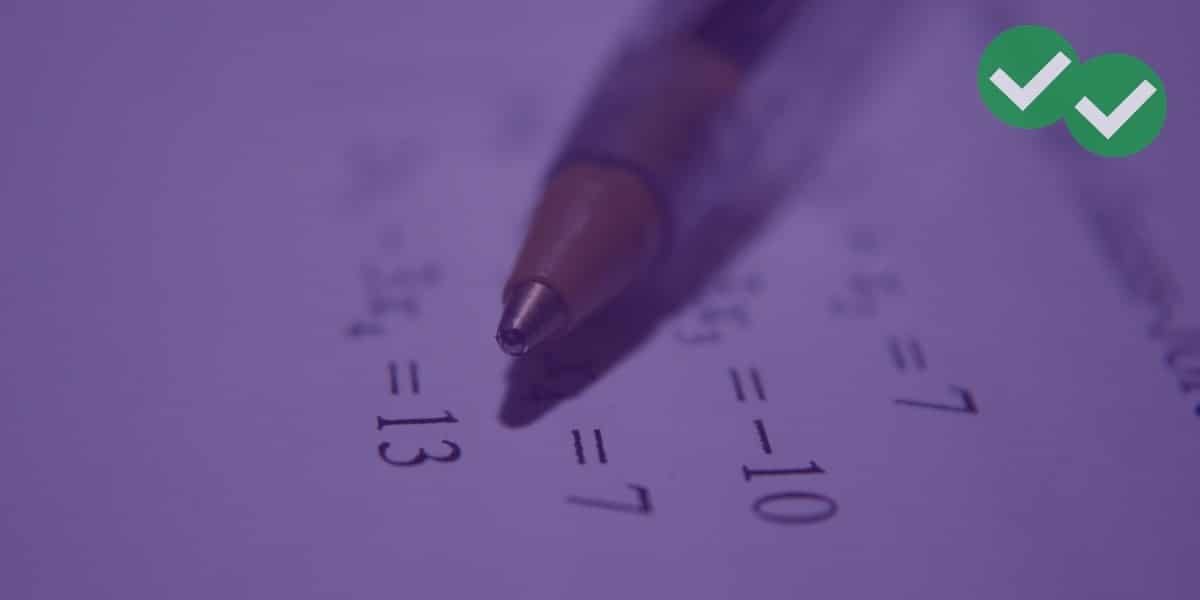
If the math section of the GRE feels like a mountain you’re not quite ready to climb, we’ve got your back. With the right strategies and a solid game plan, you can conquer that math section and boost your overall GRE score. Let’s dive into how you can turn this challenge into a triumph.
Understand the test format
Before we tackle strategies, let’s take a peek at what you’re up against. The GRE math section currently comes in two flavors: quantitative comparison and problem-solving. Quantitative comparison is all about comparing two quantities and figuring out their relationship. Problem-solving, on the other hand, tests your ability to use various math concepts and formulas to solve problems. Understanding these question types will help you manage your time effectively and approach each question with the right mindset.
Master the fundamentals
Review the fundamental concepts of mathematics that frequently appear on the GRE. This includes topics such as arithmetic, algebra, geometry, and data interpretation. Such review ensures a solid understanding of mathematical operations, equations, functions, ratios, percentages, areas, and volumes. These essential formulas and properties will be your secret weapons for acing quantitative reasoning problems.
Build a strong foundation
Strengthen your foundation by practicing a wide range of math problems. You should dig into a variety of math problems using GRE prep materials like official GRE practice tests, prep books, and online resources. Beginning with easier problems and progressing to more challenging ones will prepare you to look for patterns, shortcuts, and GRE-specific problem-solving techniques as you practice. This process will not only sharpen your problem-solving skills but also make you faster and more accurate.
Use a systematic approach
A systematic approach will help you tackle GRE math problems. Carefully read each question, break down complex problems into smaller steps, and use estimation techniques to cross off wrong answer choices. Whenever you can, plug in values or use the answer choices to check your work.
Time management
Time management is crucial in the GRE math section. You will need to stick to a strict time limit for each question—if you’re stuck, move on and come back later if time allows. Prioritize questions you’re confident about and leave enough time to review your answers at the end.
Use the on-screen calculator
The GRE provides an on-screen calculator for certain questions. Get familiar with its functions and use it strategically. It can be a lifesaver for complex calculations, but for simpler ones, mental math or estimation might be quicker. Practice using the calculator during your prep so you’re comfortable with it on test day.
Review and analyze mistakes
Reviewing and analyzing your mistakes is crucial for growth and improvement. After each practice session, go through the questions you got wrong or found challenging. Understand why you made those mistakes and identify any underlying misconceptions or gaps in your knowledge. Use this information to guide your future study sessions and focus on your weak spots.
Tap into extra resources
There’s a wealth of resources out there to help you ace the GRE math section. Join GRE study groups or online forums, use GRE prep books, watch online video tutorials, and explore educational websites with detailed explanations and practice questions. If you need extra help, consider hiring a tutor or enrolling in a GRE prep course.
In conclusion, acing the GRE math section isn’t about being a math genius—it’s about understanding the format, knowing your fundamentals, and applying effective strategies. Practice regularly, manage your time wisely, and always learn from your mistakes. With dedication and the right approach, you can rock the GRE math section and impress those grad school admissions committees.





